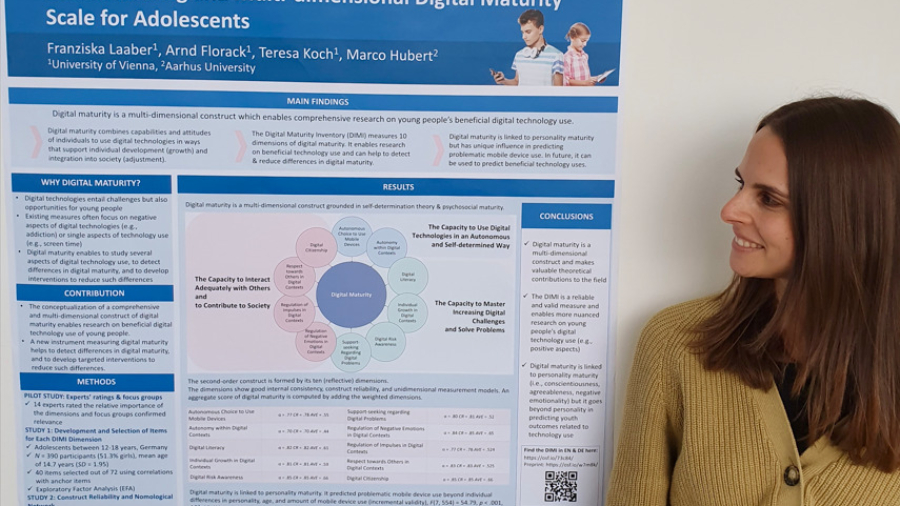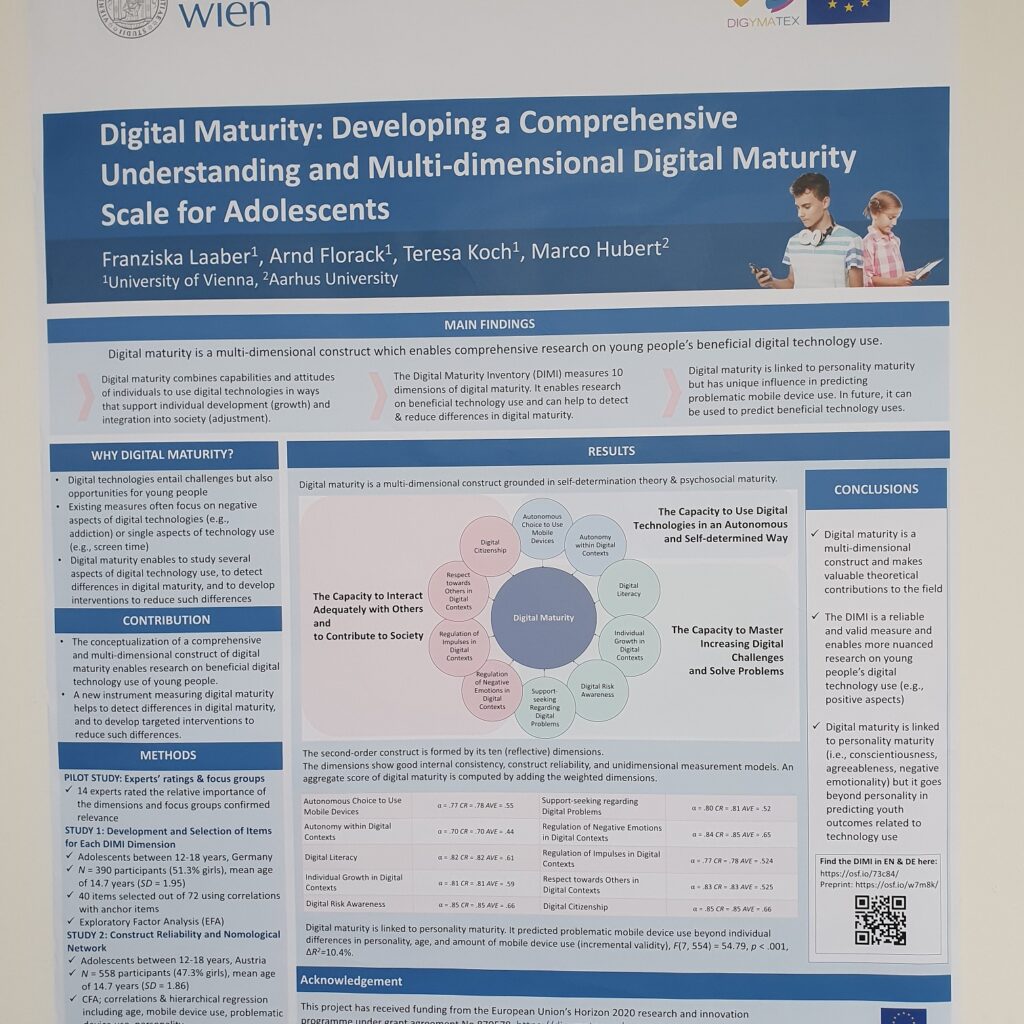DIGYMATEX researcher Franziska Laaber presented the project’s proposed digital maturity index at the 52nd congress of the German Psychological Society (Deutsche Gesellschaft für Psychologie, DGPs), held at the University of Hildesheim on September 10-15, 2022.
Called the Digital Maturity Inventory (DIMI), the scale was developed and validated by the DIGYMATEX team, including Laaber, Arnd Florack and Teresa Koch, all of the University of Vienna, and Marco Hubert of Aarhus University, in a research project made available pre-publication.
The three primary conclusions, as Laaber also presented them at the congress, were as follows:
- Digital maturity is a multi-dimensional construct and makes valuable theoretical contributions to the field.
- The DIMI is a reliable and valid measure and enables research on a beneficial digital technology use of young people.
- Digital maturity is linked to traits reflecting personality maturity (i.e., conscientiousness, agreeableness, negative emotionality) and predicted problematic mobile device use beyond the influence of personality.
To explain the gap filled by their research, Laaber and her colleagues wrote in the pre-publication that, “A large body of research has demonstrated negative effects of young people’s digital technology use. However, there has been a lack of research considering the mature use of digital technologies not only as the absence of addiction, but as a multi-facetted construct including different capabilities. Building on research of psychosocial maturity and self-determination theory […], we therefore introduced and investigated the concept of digital maturity as a novel view on young people’s use of digital technologies.”
The DIMI includes 10 key dimensions, assessed by means of 32 specific items. The 10 dimensions of digital maturity assessed through the DIMI are: Autonomous Choice to Use Mobile Devices, Autonomy within Digital Contexts, Digital Literacy, Individual Growth in Digital Contexts, Digital Risk Awareness, Support-seeking Regarding Digital Problems, Regulation of Negative Emotions in Digital Contexts, Regulation of Impulses in Digital Contexts, Respect Towards Others in Digital Contexts, and Digital Citizenship.
The results of their research “confirmed that digital maturity is linked to personality maturity (agreeableness, conscientiousness, negative emotionality),” the team said.
To validate the results, the researchers performed a hierarchical linear regression analysis to isolate digital maturity as a factor predicting problematic digital device use controlling for other characteristics of individuals in their survey sample, such as age, amount of mobile device use, and even differences in personality, which was shown to be an especially complex factor.
“We observed that digital maturity is linked totraits reflecting personality maturity (i.e., conscientiousness, agreeableness, negative emotionality),” the researchers commented. However, “digital maturity predicted problematic mobile device use beyond the influence of personality. Hence, digital maturity is a construct embedded in existing approaches of personality development but designed to measure specific competences needed in digital contexts.”
Combining all ten dimensions included in it as one coherent tool, the DIMI was shown in the research to be “a reliable and valid new measure of young people’s digital maturity”, certain to facilitate research into more beneficial use of digital technology and mobile devices among young people, the team concluded.
“We are confident that digital maturity makes valuable theoretical contributions to the field,” they noted.
“In conclusion, we conceptualized a multi-dimensional construct of digital maturity building on a humanistic framework derived from theories of psychosocial maturity and self-determination theory. We developed a reliable and valid new measure of young people’s digital maturity (DIMI) comprising ten dimensions. We are confident that digital maturity makes valuable theoretical contributions to the field. Further, the DIMI will facilitate research on a beneficial digital technology use of young people.”
To learn more on the DIGYMATEX Digital Maturity Inventory (DIMI) Toolbox for Researchers and to download the toolbox click here.


